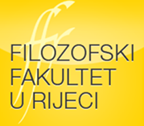Graduate psychology programme
About the programme
Undergraduate psychology programme is based on modern scientific facts and skills defined by them. The programme is characterized by a modern approach to teaching and the use of advanced teaching methods.
Comparability to international higher education programmes
In line with the recommendations of the Bologna Declaration regarding curriculum coordination, programme changes are implemented according to the norms set by the European Federation of Professional Psychologists’ Association (EFPA). The European Association of Psychologists in coordination with 12 eminent psychologists from 12 European countries (Denmark, United Kingdom, France, Finland, Greece, Italy, The Netherlands, Norway, Germany, Spain, Sweden and Switzerland) developed the “European Framework for Psychologists' Training” and proposed the criteria for obtaining the European Diploma in Psychology. This document proscribes the standards of education for psychologists in Europe, pointing out the minimum requirements for obtaining the European Diploma in Psychology. Meeting these standards ensures equal quality levels for psychological education in all of Europe.
The new undergraduate psychology programme at the Department of Psychology of the Faculty of Humanities and Social Sciences in Rijeka is designed in accordance with the defined standards, with the ultimate goal of equivalence of a diploma obtained at the Faculty of Humanities and Social Sciences in Rijeka with the European Diploma in Psychology. The standards for obtaining the European Diploma in Psychology, among other things, define the length of the programme to be five years, in two cycles (a three-year undergraduate and a two-year graduate programme).
Who can enrol?
The requirement for admission to the graduate psychology programme is a previously completed undergraduate psychology programme.
Structure of the programme
The graduate psychology programme is a two-year programme (four semesters), and the student is required to obtain a minimum of 120 ECTS. The programme is completed by writing and presenting a final thesis, for which the student acquires 10 ECTS.
The graduate programme prepares students for independent professional psychological work or a postgraduate education. The graduate programme carried out by the Department of Psychology at the Faculty of Humanities and Social Sciences in Rijeka is undifferentiated and educates students in the general psychology field. In addition to mandatory courses which cover the basic areas of psychology, students can choose among various elective courses thus creating their individual curriculum. Depending on their interests, students can enrol in different combinations of elective courses.
For the students who are interested in any of the applied areas of psychology there are optional modules offered in the frame of developmental – educational modules, clinical modules or psychology of work and organisational modules. In the module transcript supplementary to the diploma, the optional modules taken and passed by a student will be recorded.
Students who wish to qualify as a psychology teacher are required to choose modules from the teaching field.
The graduate course enables acquiring conceptions in fundamental and applied areas and the research methodology, as well as the developing of particular research skills, working in the applied areas along with developing academic and general expertise.
Fundamental competencies, which are acquired throughout the graduate course, have reference to a wide spectrum of acquired knowledge and concepts, particular professional and generic skills that can be demonstrated in all areas of the psychology practice.
The general acquired knowledge gained by completing a graduate course of psychology is as follows:
- understanding scientific foundation of psychology and their historical development,
- recognising the diversity of psychological functioning,
- knowing and critically understanding the various influences onto psychological functioning,
- knowing particularities of various applied areas,
- knowing and understanding plans and research methods, techniques of measuring and statistic procedures,
- knowing multiple perspectives and analysing their reciprocal relations,
- understanding relationship between psychology and related fields,
- Understanding ethical principles of the psychology practice and their corresponding application.
Particular skills acquired throughout graduate course:
- scientific reasoning and combining theoretical conceptions and proofs,
- integrating conceptions from different perspectives,
- establishing and evaluation of hypotheses and research questions,
- organising and realising researches on the basis of various methods of data collecting (experiments, observations, psychometric testing, questionnaires, interviews, field testing),
- reporting about researches through theoretical, practical and methodological foundation, limitations and ethical questions,
- data analyses by the means of appropriate statistic procedures,
- establishing goals in the work with clients on the basis of collecting relevant data,
- application of appropriate evaluation procedures of an individual, group, organisation or situation,
- developing services and products based on psychological theories and methods in addition to their appropriate evaluation and testing,
- identification, preparation and realisation of appropriate interventions based on established goals,
- intervention evaluation through the means of appropriate procedures,
- giving efficient written and oral feedback to the client.
General/generic skills acquired throughout graduate course of psychology:
- efficient and fluent communicating of ideas equally via written, oral and visual reporting, adjusting to the needs and expectations of the information recipient,
- ability to understand, analyse and use of numerical, statistics and other data,
- computer literacy (program skills for competent use of word processing, database and statistic packages),
- efficient collecting and presenting of information found in books, journals and internet sources,
- sensitiveness and appropriate reaction to contextual and interpersonal factors in the group, on the basis of the acquired conceptions about the complexity of factors in the foundations of conduct and social interaction – readiness for teamwork,
- taking the responsibility for individual studying and developing learning skills, as well as preparing for the life-long studying.
After the graduate course is completed, the concerned essential competencies for dealing with various aspects of psychology practice or further academic education have been acquired. Under the Law of Psychology practice (Narodne novine No. 47/03) for taking up independent psychology practice, a one-year practice followed by state exam is required. Upon passing the stated exam, the Croatian Chamber of Psychology issues a licence for independent psychology practice. This one-year practice comes after the graduate course, and is a requirement for gaining the European Diploma in Psychology. This practice is planned as a part of the academic course.
The undergraduate courses that are sufficient for managing this graduate course are:
- the undergraduate course of psychology at the Faculty of Philosophy at the University of Zagreb,
- the undergraduate course of psychology at the Croatian Language Course at the University of Zagreb,
- the undergraduate course of psychology at the Department of Psychology at the University of Zadar, and
- the undergraduate course of psychology at the Faculty of Philosophy at the University of Osijek.
Academic Title
Completing the course of psychology, one gains a title of Master of Science in Psychology.












